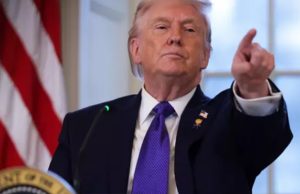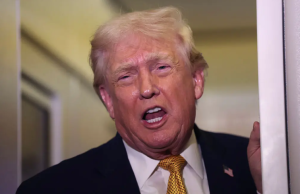
On the quiet outskirts of Voronezh, in a peaceful residential district where daily life moved without disruption, lived Daniil Landyshev—a widower, owner of a modest logistics company, and a respected figure in the neighborhood.
He lived alone with his twelve-year-old daughter, Sonya, a student at Secondary School No. 14.
Once a bright, cheerful child, Sonya had recently become subdued. She began coming home looking disheveled, with bruises on her arms and legs.
Her once-sparkling eyes were now filled with fear, and her voice had grown quieter.
Whenever Daniil asked what was wrong, Sonya offered the same unconvincing answer: “I just fell. It’s nothing serious.” But Daniil’s instincts told him otherwise.

He sensed something was troubling her, something she couldn’t bring herself to say.
The family nanny, Margarita Ivanovna, who had helped raise Sonya since infancy, voiced her own concern: “She cries in the bathroom. She thinks I don’t hear. But I do. She’s hurting inside and just enduring it.”
Determined to understand what was going on, Daniil began meeting Sonya at the door each evening.
He noticed how her posture shifted the moment she stepped inside—her shoulders sagged in quiet relief, her steps slowed, and her expression turned distant. Still, her answer to his gentle probing remained: “I’m fine, Dad.”
One evening, Daniil noticed her schoolbag lying by the door.
It was battered, with a torn strap and dirty notebooks.
Faint green stains marked the zipper, as if it had been pressed into the grass. Margarita examined it and said, “That’s not just normal wear and tear.”

That night, Daniil—anxious and desperate—made a decision that pained him. He retrieved a small microphone from his drawer and carefully sewed it into the lining of Sonya’s backpack.
He didn’t want to spy on her, but it felt like the only way to uncover the truth.
The next day, he listened. At first, the audio revealed ordinary school sounds—laughter, footsteps, conversations.
Then came a muffled thump, followed by a fearful whisper: “Don’t… Don’t touch…”
Daniil was horrified. His worst fears were confirmed. These weren’t innocent accidents—his daughter was being hurt.
But what he heard in the next recording changed everything.
Instead of a passive victim, he discovered a brave voice—Sonya’s—intervening: “Enough. Leave him alone. This is the second time.”
“He started it,” another voice protested.
“That’s no reason to attack. Back off.”

More scuffling followed, and then a quiet “Thank you…”
Sonya responded: “It’s better me than you. Go to class.”
Daniil was stunned.
His daughter wasn’t simply suffering in silence—she was protecting others. Taking the pain to shield classmates who couldn’t stand up for themselves. Suddenly, Daniil saw her in a new light.
He recalled his late wife, Alina, who once told young Sonya, “If someone is hurting, be the one who notices.
Just be there.” Sonya had remembered. From comforting a boy whose toy fell into a stream to defending a stuttering classmate, she had always been sensitive to others’ pain.
Now that early kindness had grown into something more powerful.
Daniil started noticing that Sonya was often accompanied home by a small group of children—Yegor, Masha, Natasha.

They would sit on a bench, pulling out notebooks, their faces serious in conversation. Curious, Daniil checked her diary and found entries like:
“How to help Dima feel safe during recess”
“Walk next to Anya when she’s sad”
“Encourage Artyom to speak up in class”
This wasn’t casual compassion—it was a quiet mission. A way of life.
Daniil took his concerns to the school principal, Irina Vladimirovna, a stern woman clearly weary from managing countless parent issues.
He explained that Sonya was suffering because she was defending others from bullying.
But the principal dismissed him with a shrug, citing a lack of formal reports and suggesting maybe his daughter was too sensitive.

Daniil left frustrated but resolved: he would not be silent anymore.
Days later, he found a letter in the mailbox, written in a child’s shaky handwriting:
“Your daughter is the bravest person I know. When I was locked in the janitor’s closet, I thought no one would come. But she did. Opened the door and said, ‘Let’s go home.’ Now I’m not afraid of the dark. Because I know she’s there.”
It was unsigned, marked only by a small drawing of an open hand.
When Daniil showed it to Sonya, she held it gently, her eyes bright with emotion. “Sometimes I wonder if it even matters,” she whispered. “If anyone sees.”
He stepped close, his voice trembling with pride. “It matters, Sonya. More than you know. It always has.”
Soon after, Sonya was invited to speak at a school assembly. She agreed—but only if her friends could stand beside her. On stage, she said:
“We’re not heroes. We’re just there when it’s scary. If someone cries, we stay. If they can’t speak, we speak for them. That’s all.”

The room fell silent, then burst into applause. Something shifted. Anonymous thank-you notes began appearing around the school.
More students volunteered to watch out for others. Parents, once unaware, started connecting—meeting in homes or online—to share how their own children had changed.
The wall of silence was finally breaking.
And through it all, Sonya remained quiet, steady, and focused—not seeking praise, but simply standing beside those still too afraid to hope.















